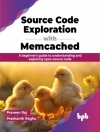In this book the authors present an HCI principle-based approach to develop applications to assist children with disabilities. Design knowledge related to developing complex solution for this audience is explained from an interaction design point of view. Different methodologies, models and cases studies are covered with the aim of helping practitioners to adopt any of the proposed techniques presented in this book.
HCI methodologies that adopt an agile strategy are presented, including novel techniques at different development steps, such as: board games, agile planning, agile implementation, method engineering. As this is a huge research field the authors do not just focus on a specific disability but test their methods in different contexts with excellent results.
Readers of this book will find both a well-organized and structured set of methodologies and also material that has been tested and refined throughout years of research. Using detailed case studiesthe reader is guided towards specific solutions which will also provide insights into how to address related problems.
Table des matières
Preface. -Flowagile XML: An HCI-Agile Methodology to Develop Interactive Systems for Children with Disabilities.- An Architectural Model to Design Graphical User Interfaces of Mobile Applications for Learning Problems in Basic Mathematics.- Extension of a User Model for Promoting the Development of Applications to Support Auditory Rehabilitation.- Interactive Systems Design oriented to Children with Special Needs.- Model-Driven Development of Interactive Environments for Occupational Therapy.- Towards the Design of Interactive Storytelling to support Literacy Teaching for Deaf Children.- Usability Study of Didactical Resources to Children with Down Syndrome.












